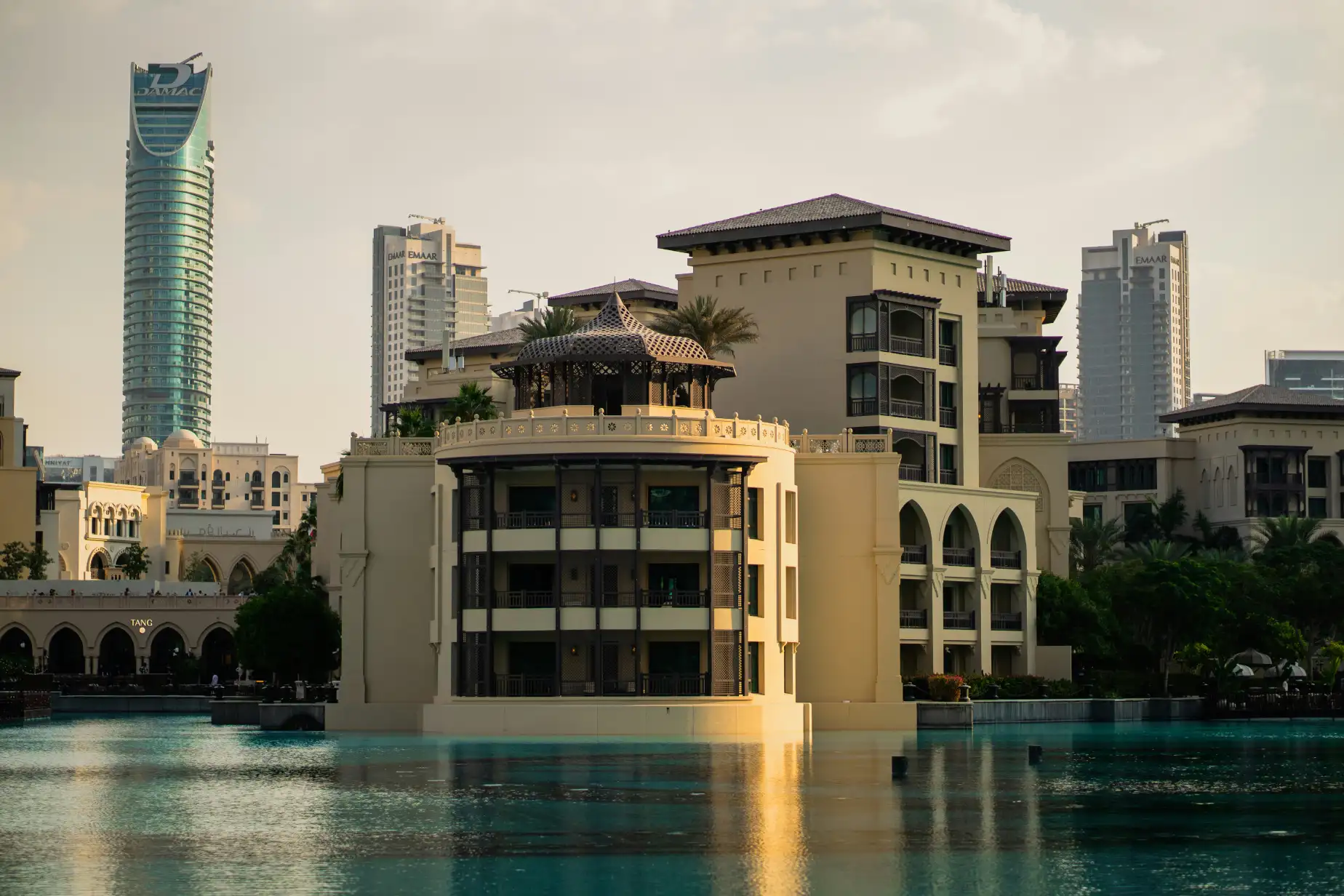Dubai’s real estate market continues to attract global investors for one key reason: its tax-friendly environment. Unlike most major property markets, the emirate does not impose annual property taxes or capital gains taxes on individuals.
However, that doesn’t mean buying or selling real estate is entirely free of government fees. This guide explains everything you need to know about Dubai property taxes, including how the system works, what the 4% fee really means, and how property taxation applies to foreigners.
How Does Property Tax Work in Dubai?
In Dubai, there is no annual property tax charged to homeowners. Once you buy a property and register it with the Dubai Land Department (DLD), you do not pay recurring taxes on ownership, capital gains, or inheritance.
Instead, the government collects transaction-based fees at specific stages, primarily when you buy, sell, or rent a property. These fees help fund regulation and infrastructure while keeping the market efficient and transparent.
For most property owners, this means you only pay a one-time transfer fee at the time of purchase and routine service or maintenance charges afterward, which go directly to the building or community management, not the government.
What Is the 4% Tax in Dubai?
The so-called 4% tax is actually the Dubai Land Department transfer fee, not a tax in the traditional sense. It applies when you register ownership of a property, whether it’s a purchase or sale.
- The DLD transfer fee is 4% of the property’s purchase price.
- It is typically paid by the buyer, although in some transactions the buyer and seller split it.
- The fee is paid at the time of ownership transfer, usually through a DLD Trustee Office.
- Once paid, the buyer receives an official Title Deed confirming ownership.
This 4% fee is mandatory for both UAE nationals and foreign investors. It serves as an administrative cost for property registration and legal recognition of ownership.
Is Buying Property in Dubai Tax-Free?
Yes, buying property in Dubai is effectively tax-free in the sense that there are no income, capital gains, or annual property taxes.
Foreign buyers enjoy the same tax benefits as UAE residents, provided the property is located within designated freehold areas. After paying the initial DLD fee and registration costs, owners are not subject to any yearly taxes on their holdings.
This system makes Dubai one of the most tax-efficient real estate markets globally, especially compared to cities like London, Paris, or New York, where property taxes can reach 1–2% annually.
Additional Costs to Be Aware Of
Although there’s no annual tax, buyers should plan for some standard one-time and ongoing costs when purchasing property in Dubai. These are not taxes but operational expenses tied to ownership.
- DLD Transfer Fee (4%): Paid at the time of purchase.
- Trustee Office Fee: A small administrative charge for handling title registration.
- Real Estate Agent Commission: Typically 1–2% of the property price.
- Service Charges and Maintenance Fees: Annual payments covering building upkeep, common areas, and community services.
- Mortgage Registration Fee: 0.25% of the loan amount, if financed.
Service charges vary depending on the property type, community, and amenities, for example, luxury developments with extensive facilities often have higher maintenance costs.
Property Tax in Dubai for Foreigners
Foreigners pay the same rates and fees as UAE nationals.
There is no additional property tax for non-residents or foreign investors.
Foreign buyers are, however, required to comply with the same Dubai Land Department regulations, including title deed registration, payment of the 4% transfer fee, and adherence to any financing or visa-related rules.
For income-generating properties, rental income is not taxed in Dubai, but owners should check if their home country applies foreign income tax or double taxation treaties with the UAE.
Real Estate Tax in Dubai for Rental Properties
Dubai does not impose a national tax on rental income, but the Dubai Municipality charges a small housing fee for tenants, typically 5% of the annual rent, added to monthly utility bills via DEWA.
For property owners renting out their units, this is not a tax they personally pay; it’s charged to the tenant.
Landlords, whether UAE nationals or foreigners, keep 100% of the rental income after deducting service charges and management costs.
Future Tax Considerations
While Dubai remains tax-free for property ownership, investors should remain aware of broader developments:
- Corporate Tax: As of 2023, the UAE introduced a 9% corporate tax on business profits. This does not apply to individuals holding real estate for personal investment.
- Value Added Tax (VAT): VAT applies to commercial properties and certain real estate services, but not to residential property sales after completion.
Dubai’s leadership continues to maintain a low-tax investment environment, a core reason why the emirate remains a global hub for real estate investment.



